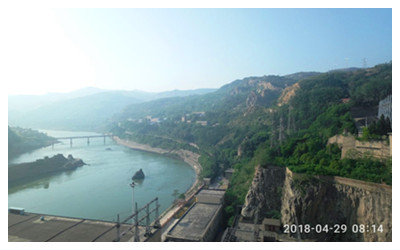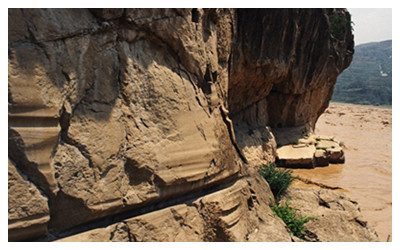Skype: neodalle-travel
Tel: +86 135 7447 2266
E-mail: sales@zhangjiajieholiday.com
 Sanmenxia Dam on the Yellow River is 14 km from the Sanmenxia city center and was the first large water-conservation project on the Yellow River after the new China was founded in 1949. The builders chose the Sanmenxia gorge for the following reasons: it's the narrowest part on the middle reaches of the river and an easy to dam; the water here is torrential, which is a big help in generating electricity; the rocky geological condition is helpful; there are three rocky islets that are good for river diversion; and it's in the last valley of the Yellow River for the best flood retention effect.
Sanmenxia Dam on the Yellow River is 14 km from the Sanmenxia city center and was the first large water-conservation project on the Yellow River after the new China was founded in 1949. The builders chose the Sanmenxia gorge for the following reasons: it's the narrowest part on the middle reaches of the river and an easy to dam; the water here is torrential, which is a big help in generating electricity; the rocky geological condition is helpful; there are three rocky islets that are good for river diversion; and it's in the last valley of the Yellow River for the best flood retention effect.
Sanmenxia Dam is spectacular when its water is discharged every June to October, with the angry torrent roaring through the gorge spraying everything around, producing a rainbow effect. From on top of the dam you can get a majestic look at the endless flow of the Yellow River. In winter, the natural wetland and water quality attract tens of thousands of white swans coming from Siberia to float on the water, or fly up above, giving the city of Sanmenxia the nickname of "City of Swans".
 Pillar Stone
Pillar Stone
Near the base of Sanmenxia Dam there is an islet with a stone landmark that has been called the spirit of the Chinese people from ancient times and a special pillar that was used by another legendary figure, Dayu, who was famous for his ability to control floods. Early on, the river's stony islets and submerged rocks were a threat to boatmen, and, to have a safe passage through Sanmenxia Gorge, they would make their way toward this stone when they passed by the three islets, the waves caused by the stones would push the boats in the right direction and save their lives.
Ancient plank road
 The old plank road along the Yellow River is an historic transport route that was used to move army provisions for the garrison in the capital Chang'an and Northwest China, during the Tang Dynasty. The remaining planks show just how close the road was to Sanmenxia Gorge and it is easy to imagine how difficult it was to carve out a narrow stone road with wooden supports on the cliff above the river so boats could be towed.
The old plank road along the Yellow River is an historic transport route that was used to move army provisions for the garrison in the capital Chang'an and Northwest China, during the Tang Dynasty. The remaining planks show just how close the road was to Sanmenxia Gorge and it is easy to imagine how difficult it was to carve out a narrow stone road with wooden supports on the cliff above the river so boats could be towed.
Today, rows of square holes for timber piles can be seen scattered along the old road and places for fastening boats when the weather got rough. The gorge was the only water transport route on the Yellow River in the distant past and could be extremely dangerous and any boat could easily be devoured by the current. From the Western Han Dynasty (206 BC-AD 24) on, the emperor would call for plenty of manpower and materiel to keep the watercourse dredged and the plank road in good shape. So, the old road is not just a symbol of the extremely hard life of those who towed the boats, but a cultural relic of Chinese and Yellow River history.
Travel Tips
Address: Wangda Road, Hubin District, Sanmenxia City
Tel: 0398-2992070
Opening hours: 08:00-18:00
 Ask Questions ?
Ask Questions ?